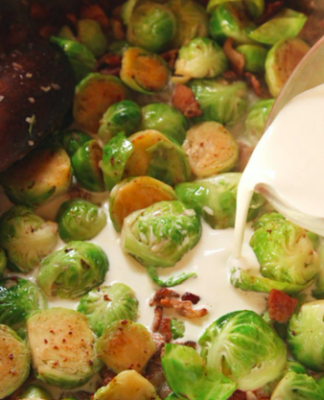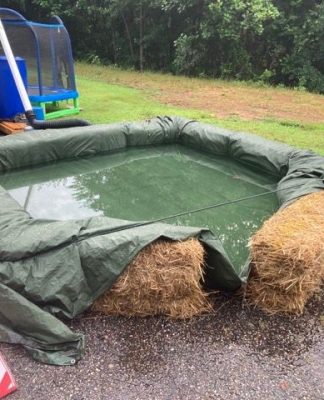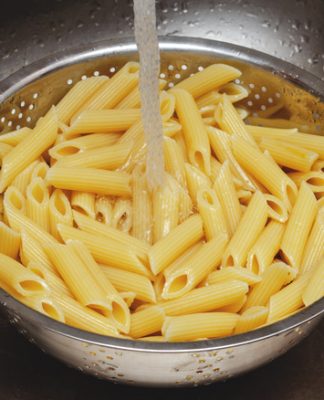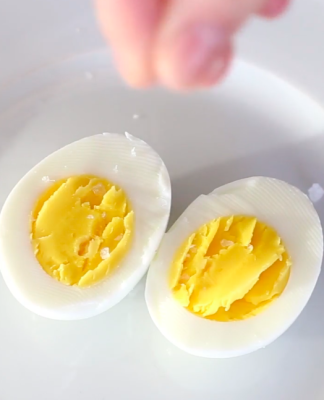All eyes of people are on the child when he focuses on the birthday presents. Your child may open a present, wince, and complain, “I’ve got this.” Knowing how to say thank you politely is an important lesson parents need to teach their children from an early age.
1. When can teach children to say thank you when receiving gifts?
The best time to teach children to politely say thank you when receiving gifts is before the holidays. This is one of the important lessons about manners that parents need to teach their children from an early age.
On the child’s birthday, all eyes are focused on the child as he receives the gifts. Children may open a gift, then wince and complain that they already have the item.
To avoid this, do a little pre-party preparation. Have children sit down and tell them, “You’ll get presents. People will want to see you open their presents and it’s great when you say ‘Thank you!’ even if you don’t like the gift.”
Even so, it’s hard to expect a child under 4 to understand a sincere thanks. If you are concerned about whether your child will be polite, you can’t wait to open the gift after the guest has left. Or you can defuse any bad comments with your own thanks: “Thank you for the doll!”. Then, explain to your child that making a rude comment about the gift hurts everyone’s feelings because everyone was trying to choose a gift to make them happy. That’s why “thank you” is the only acceptable thing to say about a gift your child doesn’t like.
However, simply saying “thank you” is not enough. Children’s experts emphasize that a thank-you note is better, especially for gifts sent in the mail.
While this might seem too formal for family and close friends, think of it this way: No one will criticize when the child does it, but they may feel unhappy if the child does not do that.
“It doesn’t have to be fancy,” says the author of Easy Eloquence: Simple Thank You Notes and Sympathy Cards, Sharon Paskoff. Your child can draw a picture if he can’t write yet and you can write a few word lines about how he likes the gift.”

Parents should teach your children to say thank you when receiving gifts from others
Paskoff suggests buying your child their own personalized stationery. Kids who can write can prepare their own thank-you notes, but parents may want to sit with them to help. For example, you can prompt your child to specifically mention the gift or explain what the money will be used for and thank the giver. Prepare to reinforce this habit until the child is fully grown.
By age 4 , many children can:
- Know how to say “thank you” for a gift received directly.
- Know how to help parents write thank you letters.
By age 8 , many children can:
- Avoid rude comments about gifts.
- Know how to say “thank you” politely for gifts received directly.
- Know how to write a thank you letter with a reminder from you.
2. How to teach children to say thank you when receiving gifts
Here are some ideas for teaching children to be grateful to others for giving them gifts. Teach your children the habit of saying thank you from the moment they can speak. This will help children form one of the rules of good behavior that will be necessary for their later life.
2.1. Explain the meaning of thank you to children
Explain to your child what “thank you” really means. Experts in children’s education say a more effective strategy is to help children understand the meaning behind expressions of gratitude.
Explain to children that to thank someone shows their appreciation for the time they spent thinking about them or doing something for them. No matter what the gift is, the children will thank you sincerely.
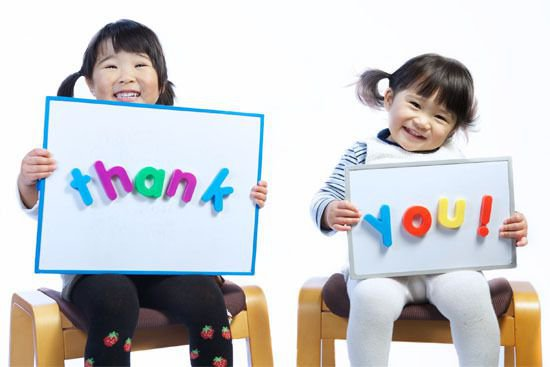
Parents need to tell their children that thank you is very important and shows sincerity.
2.2. Let your children know how to thank you with words and actions when receiving gifts
Saying thank you is very important in life, so parents should teach children to be disciplined about saying thank you and showing action when receiving gifts.
- You can introduce the lesson about receiving gifts by saying, “I want to show you what to do when you receive a gift.”. Show actions with appropriate thanks.
- Tell your child that “I never asked someone to give me a gift. Parents also never ask, “Where’s my present?”.
- Ask your child to give you a gift that you have prepared for practice. You’ll show appropriate speech and behavior when you receive a gift, you look your child in the eye, or whatever you expect your child to do when you receive a gift. For example, you could smile and say, “Thank you.” Then open the gift and continue to say “Thank you”. If it’s something you already have, you shouldn’t say, “I already have this.”
- Give an example of a nice word you can say to guide your child.
- If you want your child to hug or kiss a relative or friend, you should also show that when your child gives you a gift.
- Finally, tell your child: “In the future, I will write a thank you letter to the person who gave me a gift.”
Give an example of nice word you can say to guide your child
2.3. Give your child a chance to practice saying thank you when receiving a gift
Repetition is essential for young children to learn good manners such as teaching children to be grateful, teaching children to be polite. You should give your child as much practice as possible before he or she is actually presented with a gift. You can create opportunities such as:
- You might have a gift bag or box with a lid that you can use over and over again. You can put different toys, clothes or books that your child already has in a bag or gift box and role-play giving the gift to the child. The gift will be a surprise, and the child will have to come up with nice words to say about the gift.
- You can give small gifts to your child to practice saying thank you during the holiday season. Some parents have small gifts every day, especially during the month of December, to focus on teaching their kids to say thank you.
- You can act as a gift giver with a pretend gift.
- If you have more than one child, you can have the kids take turns giving and receiving real or fake gifts.
- After children have had many role-playing opportunities, you can discuss with them about “What should I do when I receive a gift?”.
2.4. Praise and encourage your child to say thank you to others
When you see your child knowing how to say thank you to others, give him praise to make him happy and try as the following:
- Did you know that I felt so happy when I saw the way you smiled at me, hugged me and said “Thank you!”.
- Do you know how happy I was that you were able to say what you liked about the gift you received.
- Did you know that I was delighted when you cleaned up the wrapping paper?
2.5. Don’t criticize when your child doesn’t do what you expect
If your child does not yet know how to say thank you when receiving gifts as you have taught him, you should not criticize or embarrass him in front of many people. You need to keep calm and note the following:
- Remember that young children need a lot of practice before they can master it.
- After teaching the child, you need to repeat the lesson so that the child can remember it.
- Give your child more opportunities to practice.
Please give praise and encouragement when your child does something well
Teaching children to say thank you is an extremely necessary thing in life, but not because of that, you impose and show disappointment when the child has not reached what you want. The important thing parents need to do is to let their children understand the value of actions and nurture good feelings in their children.









